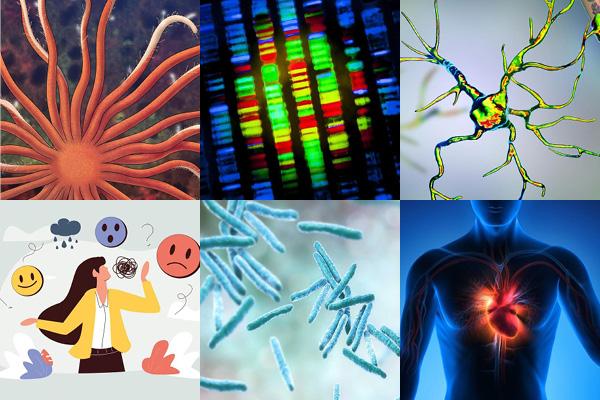-
About
- Departments & Offices
-
Academics
- Physician Assistant
- Special Master’s (MBS)
-
Admissions & Financial Aid
- Tuition & Fees
-
Student Experience
-
- Student Resources by Program
- Academic & Student Support
- Wellness & Wellbeing
- Student Life
- Events & Traditions
-
-
Research
- Research Labs & Centers
- Tufts University-Tufts Medicine Research Enterprise
-
Local & Global Engagement
- Global Health Programs
- Community Engagement
School of Medicine Top Research Stories of 2022
A look back at some of the School of Medicine's top research stories of 2022

Discovery-based research and translating the findings obtained into new treatment modalities that improve the health and well-being of people everywhere is a core part of the School of Medicine’s mission. Here is a look back at some of our top research stories of 2022.
This Gun Policy Platform Could Help Reduce Gun Violence by 28%, Researchers Say
A new report with findings from Tufts University School of Medicine experts proposes policies molded from common ground found between gun owners and non-gun owners.
How DNA from Ancient Pandemics Plays a Role in Human Disease and Development
Researchers from Tufts found that these retroviruses make up about 8% of the human genome.
In 2015, Tufts researchers set out to better define cardiogenic shock—their findings could change how it’s treated.
Tufts Scientists Use Artificial Intelligence to Improve Tuberculosis Treatments
Researchers in the Aldridge Lab have devised rules for a faster, more effective way to identify potential new drug cocktails against this infectious disease.
New research from Tufts University School of Medicine suggests critical changes to the process of transitioning people out of jail while on substance use treatment can reduce opioid deaths among the highly susceptible population.
Tufts Scientists Identify Brain Pathway Connected to Hunger and Overeating
Astrocytes, which make up nearly half of all brain cells, play a significant role in the body’s process of knowing when to eat and how efficiently to burn calories.
What Causes the Brain’s Emotional Hub to Switch to Negative States?
Researchers from the School of Medicine and Graduate School of Biomedical Sciences study the basolateral amygdala to understand how it helps the brain switch between patterns of activity.
Tufts Researchers Discover New Function Performed by Nearly Half of Brain Cells
The findings in mice could lead to new insights and treatments for a wide range of brain and neurological diseases, from epilepsy to Alzheimer’s.
A Potential New Test for Diagnosing Lyme Disease
Tufts University School of Medicine researchers identify a key testing area that could help clinicians diagnose the disease sooner and determine efficacy of treatments.
Adults with previous COVID-19 diagnosis less likely to get the vaccination
A team of Tufts researchers examined COVID-19 vaccination coverage, behaviors, and intentions among adults with previous diagnosis in the United States.